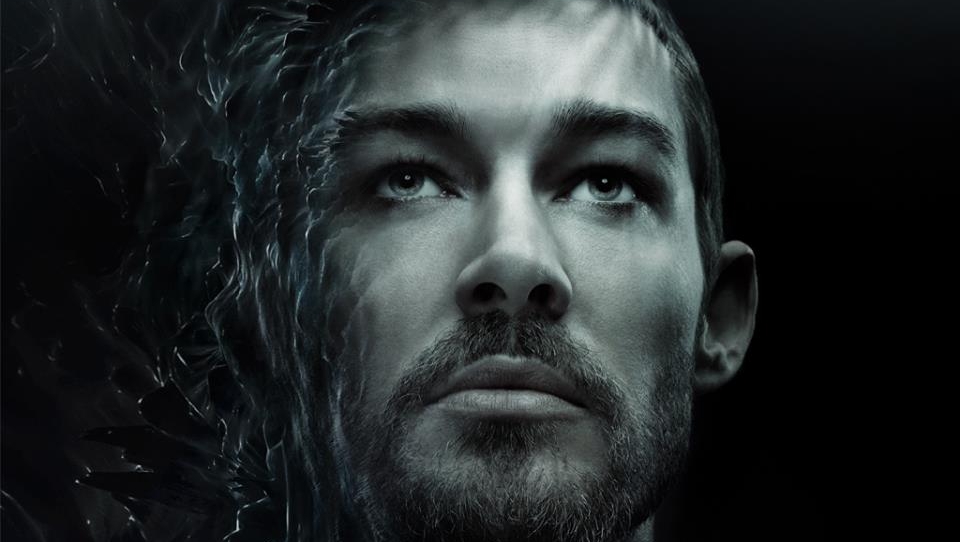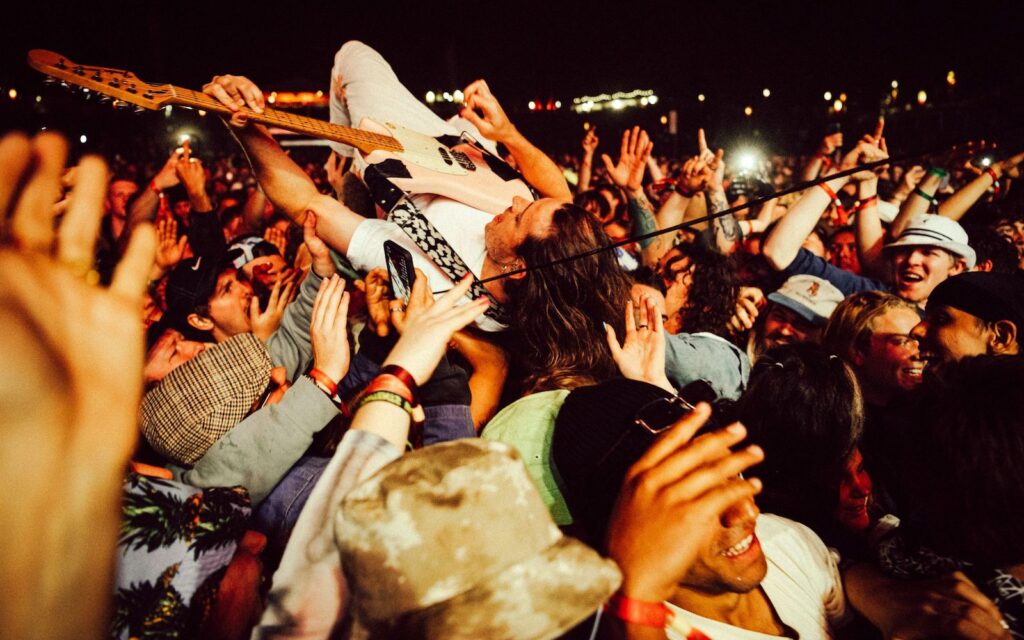“I feel like this record was always going to be divisive, but that’s just what happens,” Johns says. “Especially in my career. Some people like it, some people fucking hate me. I feel like everything that I feel or have felt is somehow represented over the catalogue of my career. Especially on Talk, and that’s part of the reason I called it that. There’s a bunch of shit that I’ve never ever talked to anyone about. It took me two years to even write a lyric, even when the music was there. I was just using distorted voices; I couldn’t write to save myself. I didn’t know how to open the floodgates, and I didn’t know what might come out. I was kind of scared of that. But as soon as I started entertaining the idea, I thought, ‘Well, if I’m going to be a singer, I probably should say something’.”
He chuckles and looks down. There is quite a media myth surrounding Johns – for evidence, we need look no further than the overblown frenzy that followed his recent tumble outside a Sydney bar – but in person he is an engaged, softly spoken man.
“They’re quite universal topics,” he says of the album’s lyrics. “If I feel something from the music that’s quite dark, I can tap into my reserves from when I was 19-years-old. I can still feel those times. If it needs to be optimistic, I have a good relationship with my girlfriend I can tap into, or my family. It’s like a little dress-up box of emotions you can open up when you need it. And so it all dribbled out.”
Anticipation for what exactly the former Silverchair frontman has been working on these past eight years has been rife, and although he acknowledges the expectation, he seems largely unfazed. He seems less driven to astound people with some unexpected new direction than to find new inspiration, to build a new voice – quite literally, in a sense. To that end he found disparate assistance from producers and songwriters Joel Little, Louis Schoorl, Damn Moroda, M-Phazes and Styalz Fuego.
“There was no sitting at a desk and saying, ‘Let’s call these people, let’s do it like this’,” says Johns. “They were a lot of happy accidents. There were also no collaborations that didn’t work. Every one turned out great in a different way, and then it’s up to me to bring it together, or make it sound like it wasn’t six million people all doing different things in the same room. I needed to be really quite strict about where things were going, because otherwise it could easily have just sounded like a fucking mess. The way that I’m singing isn’t considered in any way. It was more the freedom to not have to yell over cymbals and distortion, all of that stuff, anymore. Also, because I did the bulk of the record in my living room, I felt really comfortable to gain the mic up, turn off everything electronic that was buzzing. The fridge had to go, the air filters. I just wanted to sing quite intimately, because I thought it would be nice for a solo record. It would almost be like telling secrets.”
BY ADAM NORRIS







